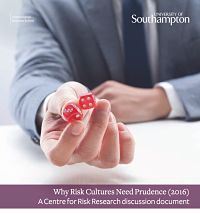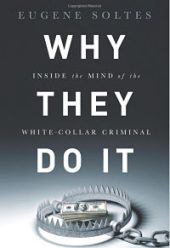Indexes - all Resources
Why narcissistic CEOs kill their companies. (2012)
"Narcissistic CEOs can be... amazingly damaging …in some cases, eventually killing their companies Eric Jackson 11 January 2012, Forbes.com …Organizational researchers may not believe that executive narcissism is of much theoretical or practical significance. They may see executive narcissism as incidental to organizational functioning - annoying to those who must endure it, grist for jokes about self-absorbed CEO...
Written by: Jackson, E.
Read moreWhy narcissists are unwilling to apologize: The role of empathy and guilt. (2017)
"...narcissists are unwilling to apologize for their transgressions, as they experience little empathy for their victims and lower guilt." Joost M. Leunissen, Nottingham Trent University, UK; Constantine Sedikides and Tim Wildschut, University of Southampton, UK European Journal of Personality 20 June 2017 This research was completed with the support of the Daedalus Trust and has already has been previewed on...
Written by: Leunissen, J.M., Sedikides, C. & Wildschut, T.
Read more
Why neuroscience matters to executives. (2007)
"..how can recent developments in neuroscience be applied to organizational management? Do these lessons pertain to all types of organizational interaction? Is there research that indicates the most effective way to introduce change in an organization? David Rock & Jeffrey Schwartz A strategy+business magazine publication New findings about the physiology of the human brain are reshaping traditional views...
Written by: Rock & Schwartz.
Read moreWhy Risk cultures need prudence. A Centre for Risk Research discussion document.
“… this document will contend that prudence has great potential to serve as the most fundamental concept within any organisation’s risk culture. Dr Alasdair Marshall, also Prof Johnnie Johnson, Prof Ming-Chien Sung, Dr Melanie Ashleigh, Dr Denise Baden, Dr Mario Brito and Dr Ian Dawson; all of Southampton Business School. A discussion document published by the University of Southampton’s Centre for Risk Research (CRR).
Written by: Marshall, Alasdair.
Read moreWhy so many leaders fail and derail. (2016)
“…derailment and disappointment among leaders are as common as success. Prof. Adrian Furnham, University College London Psychology Today 25 Aug 2016 "There are more than 70,000 books with ‘leadership’ in their title, but almost none about a common phenomenon…There may be studies of wicked, evil leaders … but there is almost nothing on the taboo subject of the ordinary wunderkind who lost the plot. "There h...
Written by: Furnham, Adrian.
Read moreWhy some men feel the need to win at all costs (2017)
"...If men fight harder than women at the negotiation table, they perhaps also fight dirtier, more often employing unethical tactics such as outright deception."
Insead Knowledge
Image: Read more
"Delegating risk oversight to committees is not enough."
Thomas Keusch, INSEAD Assistant Professor of Accounting and Control
Insead Knowledge: Leadership and organisations, 24 Nov 2016
Drawing on his research paper ‘The influence of board of directors’ risk oversight on risk management maturity and firm risk-taking’, written with Wharton’s Christopher D. Ittner, Keusch comments that “the more in... Written by: Keusch, Thomas. “…knowing the difference between right and wrong is not sufficient to avoid falling into the behavioral traps people can face when under pressure to succeed.”
Eugene Soltes, Harvard Business School professor
Pub: PublicAffairs
From the publisher’s blurb:
Soltes spent seven years (talking to) the men behind the largest corporate crimes in history - from the financial fraudsters of Enron, to the embezzl... Written by: Soltes, Eugene. "Sometimes the boss doesn't have all the answers and has to modify their position. In the face of compelling evidence, that's what should happen
Katie Hope, Business Reporter, BBC website 4 February 2015.
Based on interviews by leadership expert Steve Tappin for the BBC's ‘CEO Guru’ series, produced by Neil Koenig.
CEOs must attempt to “cut through ‘some of the bureaucratic noise’ and make sure that peo... Written by: BBC Templer, K. J. Personality and Individual Differences, Volume 124, 1 April 2018 Written by: Daedalus admin Why the whole board needs to be on top of risk management. (2016)
Why they do it: Inside the mind of the white-collar criminal. (2016)
Why those at the top still need a helping hand. (2015)
Why toxic people get ahead (2018)














